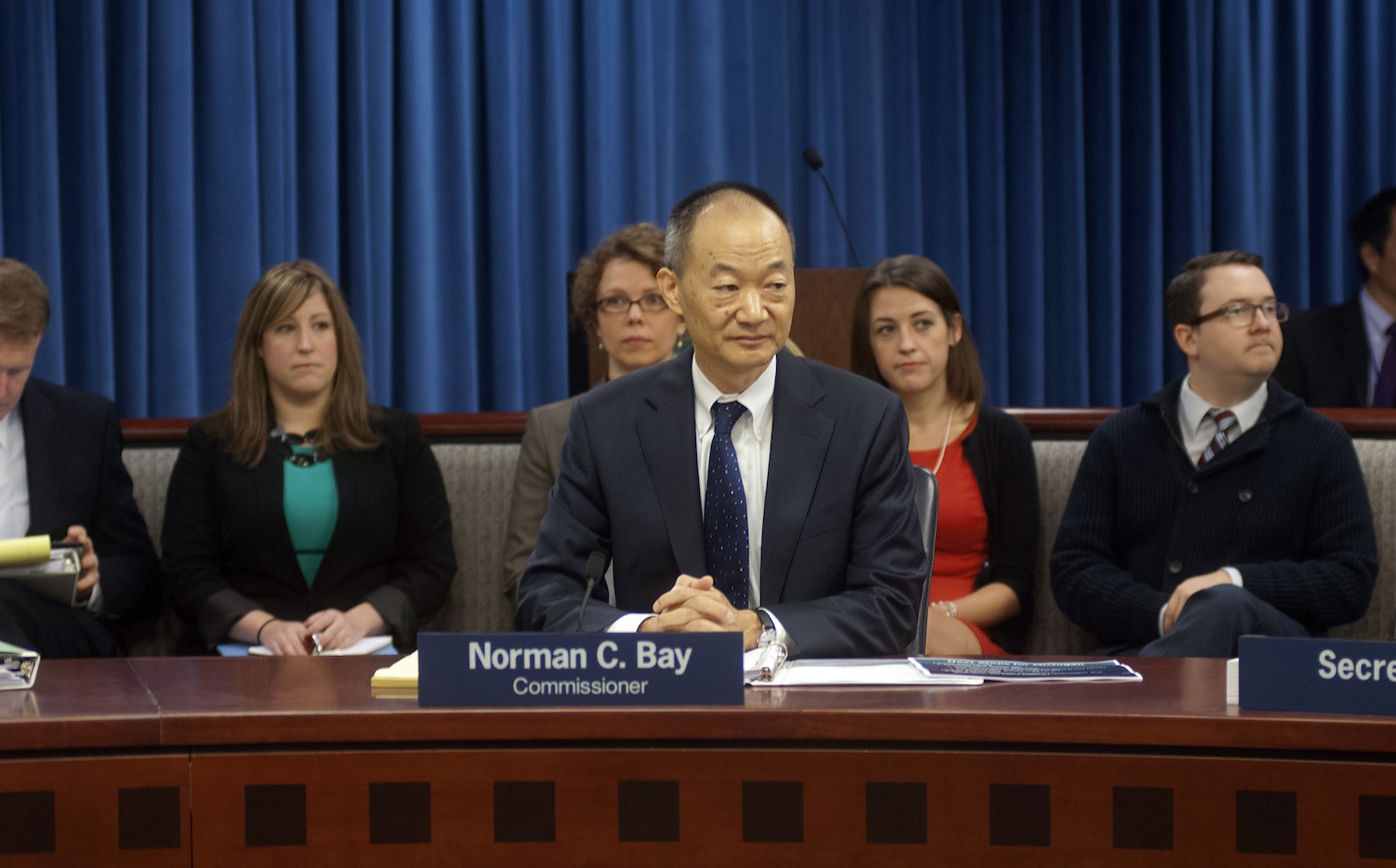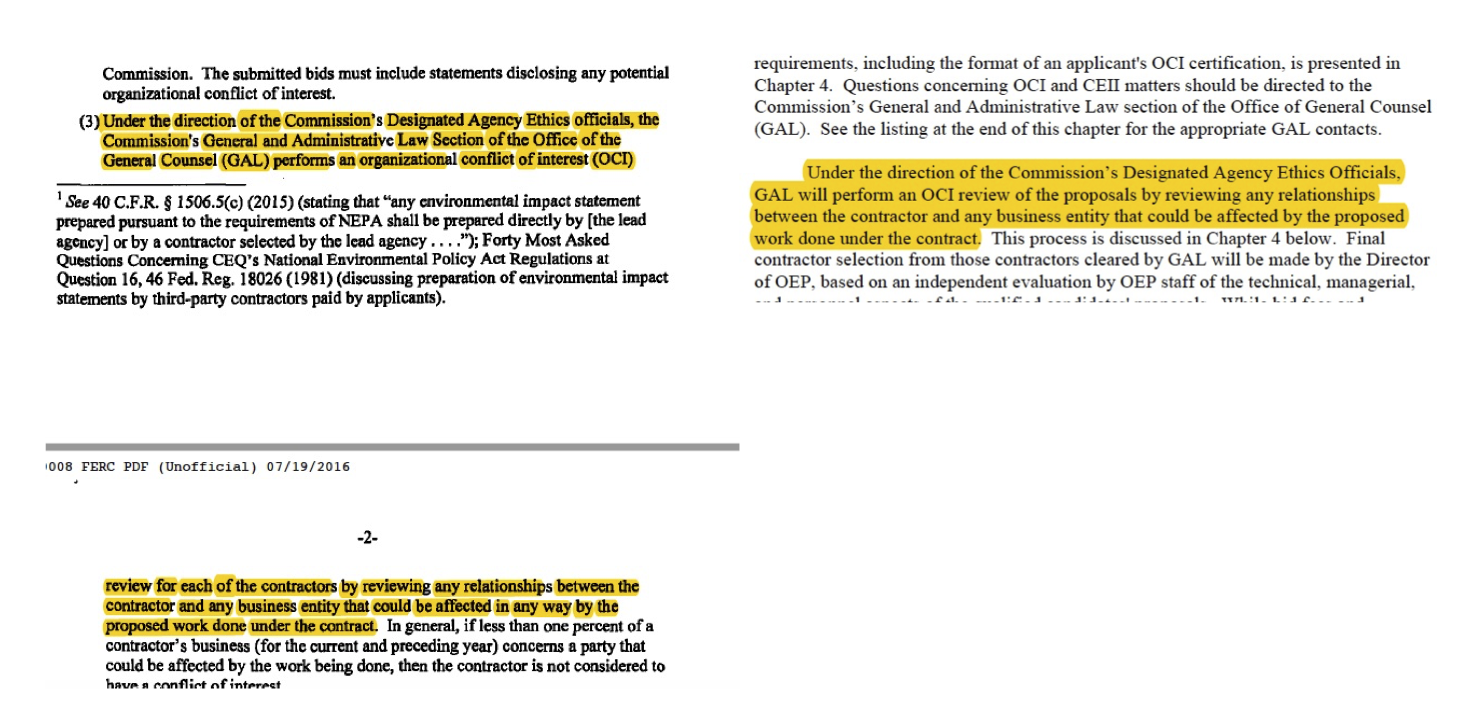Responding to an inquiry by two U.S. senators, the chairman of the Federal Energy Regulatory Commission (FERC) cited not-yet-published guidelines in an attempt to deny any missteps by the Commission in its past hiring of a contractor that reviewed a proposed gas pipeline.
As DeSmog first reported, that contractor potentially had a conflict of interest.
In mid July this year, FERC chairman Norman Bay replied in writing to an inquiry by Massachusetts Senators Elizabeth Warren and Ed Markey, who were seeking answers on the hiring of Natural Resource Group (NRG), a third party contractor, to conduct an environmental assessment for Spectra Energy’s Atlantic Bridge natural gas project.
Senators Warren and Markey raised the alarm following revelations by DeSmog about a possible conflict of interest in the early 2015 hiring of NRG, which at the time was already working for PennEast Pipeline, a consortium that includes Spectra.
As DeSmog previously reported, disclosure documents submitted to FERC reveal that when hired to review Spectra’s Atlantic Bridge, NRG did not disclose its work on the PennEast Pipeline.
Bay sought to assure the Senators that FERC followed its own guidelines in the selection, vetting, and eventual hiring of NRG.
Yet, DeSmog has found that Bay based his assertions on specific screening procedures that were published by FERC only in mid August — more than a month after he sent his letter to the Senators. The procedures were detailed in a revised version of a handbook FERC had been using to describe the process by which it screens and hires third party contractors.
A comparison of Bay’s phrasing to a segment of the revised handbook shows they are identical.
On the left, a portion from Chairman Bay’s letter; on the right, a segment from FERC’s new handbook on hiring contractors.
The revised handbook outlines a more rigorous and detailed process in the selection of third party contractors. For instance, the new guidelines require the screening of all candidates for potential conflict of interest by professionals of the General and Administrative Law section — a division within FERC’s legal office — before a final selection is made.
While in reality FERC may have used a similar vetting process in the earlier hiring of NRG for Atlantic Bridge, it is unclear why Bay quoted these new and more detailed guidelines. His letter further suggests that these procedures were applied to the hiring of third party contractors in at least the past five years, which would include the selection of NRG for Spectra Energy’s related project, the Algonquin Incremental Market.
As DeSmog previously reported, at the time it was hired to review the Algonquin Incremental Market on FERC’s behalf, NRG was already working for Spectra on other projects. During the review process, Spectra continued to hire NRG for no less than five other projects.
Bay’s citing of guidelines that had yet to be publicized also raises questions as to why he didn’t inform the senators that FERC was clearly in the midst of re-examining and revising its own guidelines for the hiring of third party contractors.
Senators Warren and Markey have since sent FERC’s Chairman a follow-up letter, seeking further answers on the potential conflict in the Atlantic Bridge project. Bay has yet to respond to that letter, which was sent over two months ago.
In a comment provided to DeSmog, a FERC spokesperson says that Chairman Bay’s letter reflected existing procedures at FERC, which the revised handbook merely detailed and sharpened.
The FERC spokesperson told DeSmog:
“The Chairman’s letter outlined the procedures we were following at the time. The guidance document did come out later, but we were following the procedure in question before the guidance document was revised. When the guidance document was revised, it was made more explicit to reflect what we already were doing.”
Yet environmental watchdog groups, which have criticized FERC for consistently approving new gas projects, are still troubled by this latest revelation.
“Chairman Bay’s misrepresentations to Senators Warren and Markey speaks to the dire need for serious reform at FERC, which acts as a rubber stamp for the oil and gas industry,” says Karina Wilkinson, a Massachusetts Coordinator for Food & Water Watch. “We have opposed Spectra’s build-out along the Algonquin line from the outset, and it goes without saying that environmental reviews of the projects should not be conducted by a company with a conflict of interest.
“Residents have the right to be assured that an impartial review is being done,” Wilkinson adds. “If pro-industry companies are reviewing the project proposals, then it is just one more way that FERC can guarantee that these pipelines will be approved.”
Food and Water Watch, together with a number of other groups and residents affected by Spectra’s new projects in the Northeast, have taken legal action against FERC. The coalition has recently filed a Motion for Stay in a DC Court of Appeals, seeking to halt the construction of the Algonquin Incremental Market. In part, they cite the revelations of a possible conflict of interest in hiring NRG to review the project.
Main image: FERC Chairman Norman Bay Credit: Federal Energy Regulatory Commission
Subscribe to our newsletter
Stay up to date with DeSmog news and alerts







